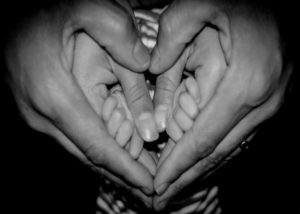 In honor of Valentine’s Day, we thought this topic would be a good one to share. And while it’s not specifically family-focused, it’s about relationships and isn’t that what families are about? Okay, moving on.
In honor of Valentine’s Day, we thought this topic would be a good one to share. And while it’s not specifically family-focused, it’s about relationships and isn’t that what families are about? Okay, moving on.
This blog is excerpted from Dr. Gordon’s last book, “Good Relationships: What Makes Them, What Breaks Them”, co-authored by Noel “Speed” Burch (also co-author of the T.E.T. book).
I have heard it said so many times and stated in so many ways that I now believe it must be the way a lot of people think about relationships. They say “I’m in a new relationship” or “I got out of that relationship” or “this is the end of that relationship” or “all my relationships are fine in the beginning but end badly” and I think everybody knows what the speaker means. It feels like, seems like relationships, especially close, loving ones have clear beginnings and ends.
But another way to think about it is to consider all of us related all the time. Accepting that connection, what anyone can do is change the forms that relationships take. It’s obvious to me that I have spent my entire life relating to people, some closely, like family and friends, others such as employees and other co-workers, teachers, ministers, coaches and the like more distantly and yet others I have met and spoken to but never really known. I found that I can bring people closer or move away from them but regardless, I relate to them. Poets, philosophers and theologians have commented much more eloquently than I can about our connection to each other and the opportunities and responsibilities that entail.
I want to add that I’ve found that if I truly want to change my life for the better, if I really want to be healthier and happier, a change I can make is to improve the quality of my relationships … and it’s up to me. I’m the only one who can do it. It’s my responsibility. If the term “responsibility” sounds burdensome or seems loaded with guilt, that’s not what I mean. What I’m talking about is an opportunity I have, and everyone else has, to improve relationships, to make changes that matter.
Rob Koegel, a professor at the State University of New York at Farmingdale, asked students to respond to a questionnaire about their best and worst relationships. Some of the questions were about relationships between the students and people of more or less equal status such as friends, partners, siblings and the like. Others were about themselves and people with greater status like bosses, teachers, professors, parents, etc. The students were asked to describe what these relationships were like and the results were illuminating. They named respect, caring, trust, honesty, support and good communication as characteristics of their best relationships and went on to say these relationships cultivated empathy, compassion, understanding and respect for differences. They said when others exhibited these characteristics, relationships with them were good regardless of status differences
Dr. Koegel said students told him their best relationships were fulfilling and uplifting, made them happier, stronger and more complete. He summed up; “Our best relationships make us feel appreciated, valued and worthy. They also make us feel more connected to and trusting of others. Unlike most other relationships, this reciprocal connection nourishes, supports and empowers both parties”.

